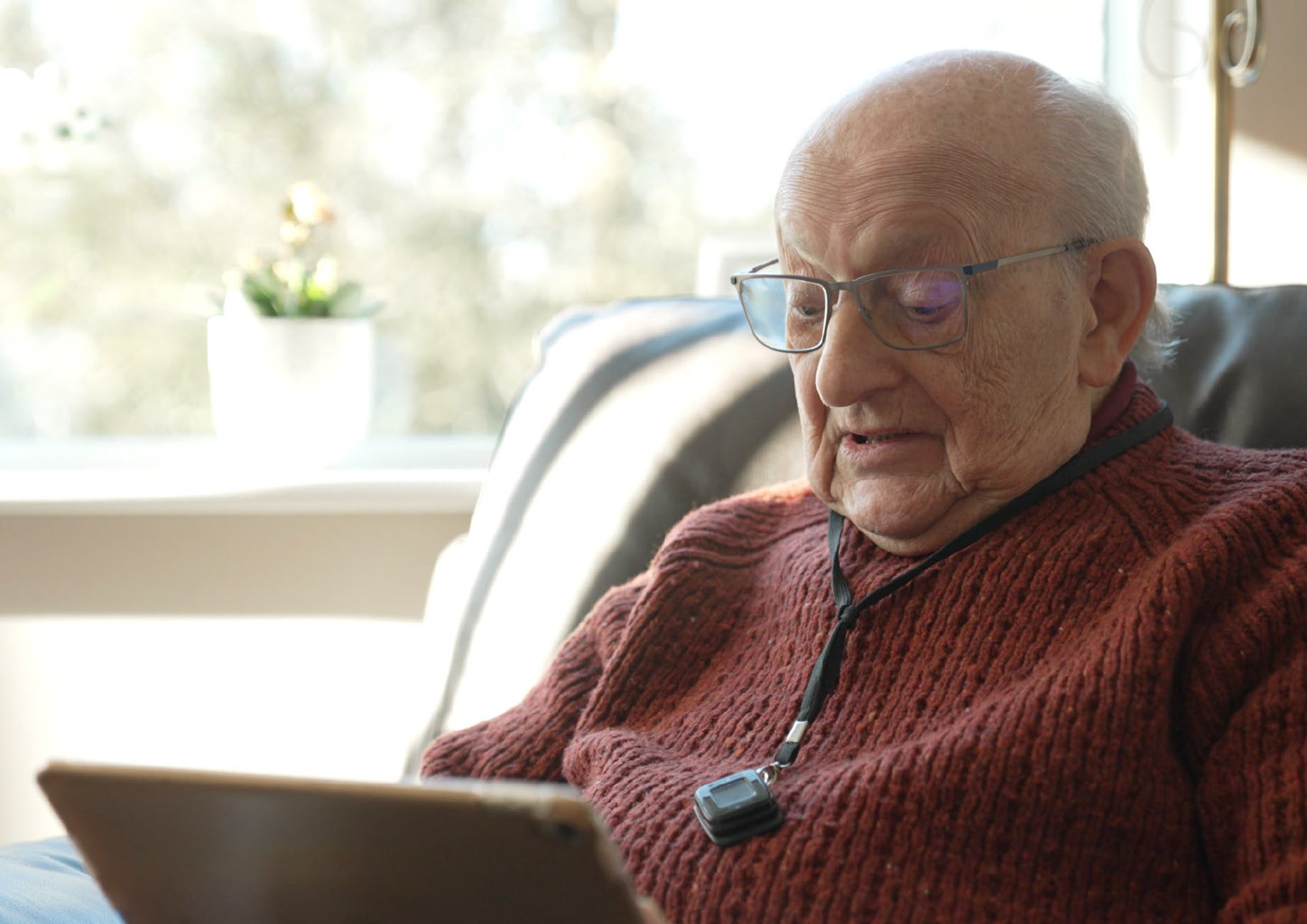At Everon Group, our mission is to show how technology can transform the lives of people across Sweden, Finland and the UK for the better. We believe that technology doesn’t have to be complicated and that’s why we’re investing in intelligent systems that are hassle free and easy to use and understand.
For those who deliver home care, care home and supported housing services this technology can free up time for tasks that matter the most. It can also allow more people in their care to be independent for longer. Evaluation of our work in Sweden, for example, highlights the impact the latest data driven solutions can have by allowing more resource to be invested in prevention-led, technology enabled care.
Municipalities are specific geographical areas of the country which provide services for residents and businesses. They are similar in scope to district or county councils or unitary authorities in the UK or a ‘kunta’ in Finland.
This study found that customers with Everon SDS have an increased feeling of independence and security that in turn increases the reassurance of those they care for and their families.
It also showed how by reducing the number of physical visits, nurse staff can work more efficiently and focus on those needing more intensive care.
Scheduled Digital Supervision impact study
Nordic Healthcare Group (NHG) carried out a study on our behalf in February and March 2025 to assess the cost-effectiveness of our Scheduled Digital Supervision (SDS) services at public home care settings within each region. It was based on insights gathered from 12 expert interviews as well as public data sources. These were used together to estimate the potential cost savings of Everon Group’s SDS service.
It also compared the ability of the SDS service to replace physical home care visits with remote channels, evaluating the financial impact and other indirect benefits.
Municipality 1 – Key findings
In the first study area, NHG considered our SDS services for home care operations during nighttime hours. The service replaced physical night visits with digital supervision, allowing healthcare staff to focus on people who required in-person care.
The municipality determines how many digital checks ins or visits a client needs – typically 2-3 a night and whether these could be conducted digitally. Around half of home care clients were eligible for the service. Patients or relatives are required to give consent for using the service.
For those needing three visits a night two can be conducted remotely, saving an estimated 6,000 SEK a month per customer, largely in nursing time.
Overall, some 2.1m MSEK for the current users could be saved annually, allowing a potential expansion of the service to 20 more customers.
In addition to identified direct cost savings, the SDS service provided other indirect benefits including increased end-user satisfaction with customers feeling more secure and independent.
The switch to this digital approach has reduced about 70 physical visits per night, saving the work of an estimated 3 care workers. In terms of positive impact, the system has made it easier to allocate resources, reduced stress for staff and allowed for time for clients who need hands-on care.
Municipality 2 – Key findings
In the second study area, NHG also considered our SDS services for home care operations during nighttime hours. Again, the service replaced physical night visits with digital supervision, allowing healthcare staff to focus on people who required in-person care.
Everon Group’s SDS service has been in place for several years with 2-3 digital checks per client per night, for those clients identified by the municipality as being eligible. The study identified total direct cost savings of 27.24MSEK a year would be achieved if in-person home visits were replaced by remote checks, allowing a potential expansion of service to 20 to 40 more customers.
Estimates on indirect benefits of the SDS service included increased security and independence for users, reduced disturbances and improved efficiency for care staff.
Those interviewed for the study said the system helped clients to stay at home longer, postponing the need for more intensive care. By minimising physical night visits, staff could also focus on those most in need of in-person assistance, especially in rural areas.
The municipality manages digital supervision independently, optimising response times and reducing unnecessary alarms.
Christoffer Balthammer, Sales and Marketing Director, Everon Group (Sweden) said: “We’re grateful to both municipalities for the opportunity to study closely the impact of our SDS service in Sweden – and it’s encouraging to see the impact that a digital approach is having in addressing the resource challenges faced in all three countries in which we operate.
“The study shows that by switching to a digital monitoring service it can result in better safety for people receiving care and reduced pressures on staff who were then better able to prioritise care to those who need it most.
“What is also helpful is hearing the experience of using our system. This has resulted in improved procedures and guidelines to ensure we continue to deliver the highest quality level of service and reliability to our clients. The lessons learned from this study will help us to advance further improvements that will allow more people to live independently for longer.”
To find out more about what Everon Group and the services we provide across Sweden, Finland and the UK, visit: https://everon.global/


